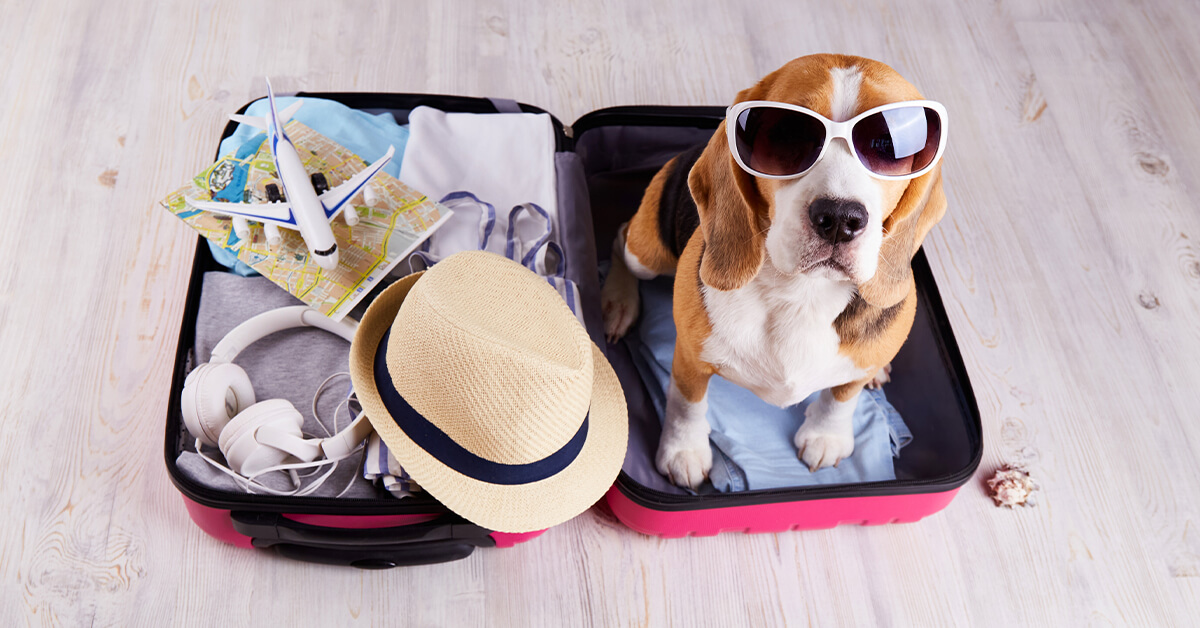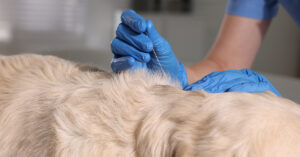Traveling can be a delightful experience, but it can also be stressful – and that’s just for humans! Imagine how confusing and intimidating it might be for our pets. Whether planning a road trip or catching a flight, ensuring that your pets are well-prepared for the journey is essential. Here are some tips and advice for traveling with pets and choosing the best pet-friendly accommodations.
1. Preparation is Key
Before you start your journey, make sure to check with your vet. This is especially crucial if you’re traveling by plane, as airlines often require a health certificate issued by a veterinarian Your vet can also offer suggestions for managing anxiety, motion sickness, or other issues your pet may face while traveling.
Updating your pet’s ID tags or microchip information with your current contact details is essential. Bring any along necessary medications, your pet’s medical records, and a first-aid kit. Also, pack their favorite toys and bedding to give them a sense of comfort and familiarity during the trip.
2. Car Travel Tips
When traveling by car, make sure your pet is safely secured. Use a well-ventilated crate or carrier large enough for them to sit, stand, lie down, and turn around in. Secure the crate with a seatbelt or wedged into the backseat so it doesn’t move around while you’re driving.
Make frequent stops to give your pet the opportunity to stretch, go to the bathroom, and have a drink. And remember, it’s crucial not to leave your pet unattended in a parked car, as the temperature can rapidly escalate to hazardous levels.
If your pet isn’t used to traveling in a car, doing some trial runs with short drives before embarking on a long journey is a good idea.
3. Air Travel Tips
Each airline has its own pet travel policies, so check their requirements well in advance. Some small pets may be allowed in the cabin, while larger pets will need to travel in the cargo hold.
If you can, opt for a non-stop, direct flight to reduce both the stress on your pet and the potential for mishaps during layovers. Ensure your pet’s carrier is well-ventilated, sturdy, and appropriately labeled with your contact details and special instructions.
Consult your vet about feeding your pet before the flight. It’s usually advised to feed them around four hours before departure so they’re not traveling on an empty stomach but are less likely to have digestive issues during the flight.
4. Choosing Pet-Friendly Accommodations
When choosing pet-friendly accommodations, consider the following factors:
- Policies and Restrictions: Some accommodations may restrict pet size, breed, or the number of pets allowed. Check their policies in advance to avoid surprises.
- Pet Amenities: Look for accommodations that offer special pet amenities, such as pet beds, bowls, or a welcome package with treats and toys.
- Pet Fees: Some accommodations may charge an additional pet fee, so factor this into your budget.
- Nearby Facilities: Choose a location near pet-friendly parks or trails, and check for nearby pet stores or veterinary clinics.
- Pet Sitters or Daycare: If you plan to do activities that aren’t pet-friendly, check if the accommodation offers pet-sitting services or if there are nearby pet daycare facilities.
5. Arriving at Your Destination
Once you reach your destination, give your pet some time to acclimate. Set up their bed and toys, offer them water, and let them explore the new environment at their own pace.
Traveling with pets requires careful planning and consideration, but the rewards of sharing new experiences and adventures with your furry companions make it well worth the effort. Remember to prioritize their comfort and safety throughout the journey, and you’ll both enjoy a memorable trip together. You can learn more about traveling with your pet by visiting www.pettravel.com.
Let us help prepare you and your fury companion for your next trip. Call (949) 464-1000 to schedule an appointment with Dr. Cohen today.
Dr. Mathew Cohen, DVM MS CVA, the Medical Director at Laguna Beach Veterinary Medical Center, is certified to perform International and Interstate Health Certificates).



